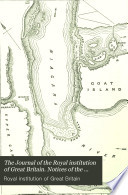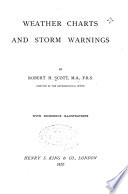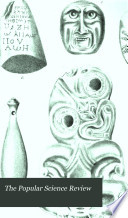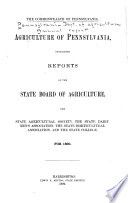 | Royal institution of Great Britain - 1875 - 584 pages
...illustrated by the diagram before you. It was fully explained in my former lecture. The law is — " Stand with your back to the wind, and the barometer will be lower on your left hand than on your right." As a simple result of this fertile generalization, we find that there... | |
 | Robert Henry Scott - 1876 - 230 pages
...principle, which, for convenience, is known as Buys Ballot's Law, is contained in the following statement. Stand with your back to the wind, and the barometer will be lower on your left hand than on your right. These words hold good, except close to the equator, for the northern... | |
 | Andrew Wynter - 1877 - 348 pages
...explanation is known by the name of Buys Ballot's Law, as declared in the following statement : — Stand with your back to the wind, and the barometer will be lower on your left hand than on your right. These words hold good everywhere, except close to the equator, or the... | |
 | James Samuelson, Henry Lawson, William Sweetland Dallas - 1879 - 496 pages
...telegraphy. It is usually known under the name of Buys Ballot's Law, and is stated as follows : — " Stand with your back to the wind, and the barometer will be lower on your left hand than on your right." The truth of this law is evident to anyone who looks at a •weather... | |
 | Pennsylvania. State Board of Agriculture - 1890 - 660 pages
...adjoining areas of high and low pressure is given by the following rule. The general rule is:Stand with your back to the wind and the barometer will be lower on your left hand than on your right. Thus the wind may be expected to be : Easterly, Avhen the pressure is... | |
 | Eneas Sweetland Dallas - 1873 - 584 pages
...absolute height of the barometrical column. This principle is known as Buys Ballot's law. The law is— "Stand with your back to the wind, and the barometer will be lower on your left hand than on your right." As a simple result of this fertile generalization, we find that there... | |
 | 1881 - 858 pages
...persistently urged its importance about the year 1860, and after him it has generally been named. It is thus stated : — " Stand with your back to the wind, and the barometer will be lower on your left hand than on your right." The truth of the law is evident on the inspection of any weather chart,... | |
 | JOHN SWANN WITHINGTON - 1881 - 788 pages
...low pressure relative to the wind may be ascertained in the northern hemisphere as follows : — " Stand with your back to the wind, and the barometer •will be lower on your left hand than on your right." In the southern hemisphere the reverse of this is the case. This is... | |
 | Robert Henry Scott - 1883 - 32 pages
...which I have mentioned, into what is known as his Law, which for the northern hemisphere runs thus. " Stand with your back to the wind and the barometer will be lower on your left hand than on your right." The apparatus consists of a bar or cross piece like a ship's yard, hoisted... | |
 | 1883 - 350 pages
...which I have mentioned, into what is known as his Law, which for the northern hemisphere runs thus. " Stand with your back to the wind and the barometer will be lower on your left hand than on your right." The apparatus consists of a bar or cross piece like a ship's yard, hoisted... | |
| |